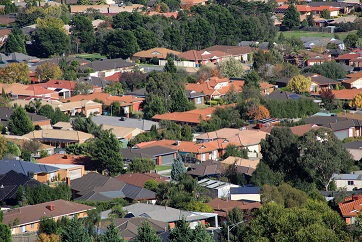Last Updated on November 14, 2023 by CREW Editorial
In a keynote speech delivered at the National Mortgage Conference in Montreal this week, Benjamin Tal warned that instituting rent control could spell disaster.
Speaking specifically about Ontario’s Fair Housing Plan, introduced in April 2017, Tal says it triggered rent control inflation.

“To understand the condo market, we must understand the rental market,” said Tal, the deputy chief economist of CIBC World Markets. “The government of Ontario with the Fair Housing Plan decided to introduce rent control. I think it’s a bad idea because we need to develop a rental mentality; we don’t need to maximize homeownership. Renting should be okay.”
According to a report released last year by the Canadian Centre for Economic Analysis, 70% of Ontarians are living in homes with either too much or too little space, and that has had a deleterious impact on the shelter consumption affordability ratio. Perhaps it is not surprising, then, that Tal is advocating for fewer homeowners, however, the implementation of rent control may stymie any progress on that front.
“We should reach a situation in which you are 35 years old with two kids, and if you’re renting nothing is wrong with you. We need to see more purpose-built rentals, just to provide more manoeuvering. The government introduced rent control, which I think is a very bad idea.
“There’s a Swedish economist who said ‘Rent control is the best way to destroy a city, maybe besides bombing it.’”
Roughly 50% of condominium units in Toronto and Vancouver are investor-owned, which leads Tal to wonder what will happen when they stop investing. An Urbanation report earlier this year revealed that 44% of Toronto condo investors have negative cash flow, and Tal added that many are losing upwards of $1,000 a month.
However, not everybody believes they’re losing on their condo investment in Canada’s largest city, because their tenants are paying mortgages on units their children will one day live in.
“Toronto’s and Vancouver’s biggest issue is land supply, and the supply of housing is getting worse,” said Tal. “In the short-term, the market will go down. Long-term, [prices] will go up.”
Neil Sharma is the Editor-In-Chief of Canadian Real Estate Wealth and Real Estate Professional. As a journalist, he has covered Canada’s housing market for the Toronto Star, Toronto Sun, National Post, and other publications, specializing in everything from market trends to mortgage and investment advice. He can be reached at neil@crewmedia.ca.









